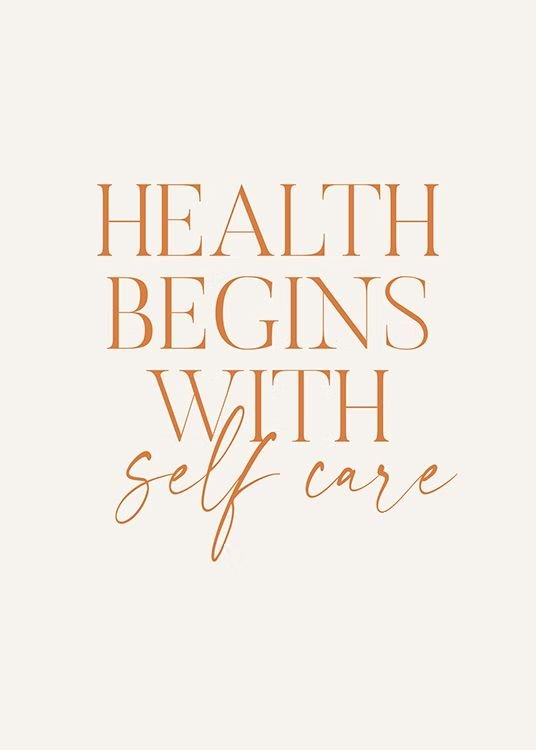Taking time for yourself is essential in a fast-paced world where demands seem endless. Self-care is not just a luxury; it’s a vital practice that enhances your overall well-being and quality of life. By prioritizing your needs, you can improve not only your physical health but also your emotional and psychological resilience.
You may wonder where to begin with self-care or how to incorporate it into your daily routine. Approaching self-care can look different for everyone, whether it’s establishing a calming morning ritual, dedicating time for physical activity, or connecting with nature. Understanding the various dimensions of self-care can lead to a more balanced and fulfilling life.
Exploring self-care allows you to discover what truly nurtures you and helps you recharge. By embracing small changes and acknowledging your personal needs, you create a foundation for lasting wellness in all aspects of your life.


Key Takeaways
- Self-care enhances your well-being and improves your quality of life.
- Building a self-care routine can be tailored to fit your individual needs.
- Incorporating self-care into daily life can foster emotional and psychological stability.
Understanding Self-Care
Self-care is a vital practice that enhances your well-being across multiple dimensions. It involves intentional actions that promote your health and resilience, impacting both your mental and emotional states.
Definition and Importance
Self-care refers to the actions you take to preserve or improve your health. It includes activities that support your physical, emotional, mental, and spiritual well-being.
The importance of self-care cannot be overstated. Engaging in self-care helps you manage stress, boosts your happiness, and enhances your resilience in challenging situations. It’s not merely a luxury; it’s a necessity for maintaining a balanced life. Regular self-care can prevent burnout and promote a deeper connection to yourself.
The Four Dimensions
Self-care can be categorized into four dimensions: physical, mental, emotional, and spiritual.
Physical Self-Care: This involves activities that enhance your bodily health, such as exercise, nutrition, and sleep. Regular physical activity boosts your energy levels and increases your overall well-being.
Mental Self-Care: Engaging in hobbies, reading, or other intellectually stimulating activities falls under this category. Mental self-care nurtures cognitive health and keeps your mind sharp.
Emotional Self-Care: This includes practices that help you process your emotions effectively. Journaling, therapy, or talking to friends can support your emotional landscape.
Spiritual Self-Care: Activities like meditation, prayer, or spending time in nature help you connect with your deeper self. This dimension fosters a sense of purpose and inner peace.
World Health Organization’s Perspective
The World Health Organization emphasizes that self-care is integral to a holistic approach to health. It acknowledges that empowered individuals are better equipped to manage their health needs.
Self-care aligns with WHO’s definition of health as a state of complete physical, mental, and social well-being. By prioritizing self-care, you contribute to not only your well-being but also to the health of your community. Engaging in self-care can lead to a more productive and happy life, benefiting both you and the people around you.


Building a Self-Care Routine
Establishing a self-care routine is essential for enhancing well-being. This involves evaluating your needs, crafting a personalized plan, and seamlessly integrating self-care into your daily life.
Assessment of Needs
Start by identifying your specific needs. Consider what areas of your life require support, such as emotional, physical, or social aspects.
- Reflect on how you feel daily and jot down any stresses or burnout.
- Evaluate your habits. Are your routines draining or energizing?
Seek feedback from trusted friends or a therapist to gain insight. Tracking your mood can also reveal patterns that help you understand what self-care strategies suit you best.
Recognizing your barriers is crucial. Whether it’s time constraints or lack of resources, knowing these can assist in shaping a realistic self-care plan.
Creating a Self-Care Plan
Once you assess your needs, it’s time to develop a self-care plan. Outline strategies that resonate with you and meet your identified needs.
- Prioritize activities that enhance mindfulness. This may include journaling or meditation.
- Incorporate gratitude practices to foster positivity, such as listing things you appreciate daily.
Set clear boundaries to protect your time. Determine when to say no to avoid overcommitting yourself.
Choose specific days and times for self-care activities to ensure consistency. By scheduling these moments, you are more likely to follow through with your plan.
Incorporating Self-Care into Daily Life
To make self-care a habit, integrate it into your routine. Small adjustments can yield significant benefits.
- Set reminders on your phone for activities like stretching, taking breaks, or practicing mindfulness.
- Create a self-care space at home that inspires relaxation and focus.
Mix short activities throughout your day. For instance, take five minutes for deep breathing during lunch or a short walk in the evening.
Regularly evaluate your self-care plan and make adjustments as needed. What works might change over time, so stay flexible and attentive to your evolving needs.


Emotional and Psychological Well-Being
Caring for your emotional and psychological health is vital for overall well-being. This involves managing stress and anxiety, overcoming burnout and depression, and enhancing resilience and happiness.
Managing Stress and Anxiety
To effectively manage stress and anxiety, it’s essential to identify triggers and understand their impact on your mental health. Practicing mindfulness techniques, such as meditation and deep breathing, can significantly reduce stress levels.
Creating a structured routine helps foster a sense of control, allowing you to tackle tasks systematically. Incorporate physical activities, such as yoga or walking, to release endorphins, which enhance mood. Additionally, prioritize human connection through social interactions, as strong relationships are crucial for emotional support.
Regular self-reflection can help you recognize and process your feelings, reducing anxiety over time.
Overcoming Burnout and Depression
Burnout often stems from prolonged stress and can lead to feelings of helplessness. Recognizing the signs early is crucial. These may include fatigue, irritability, and a decreasing sense of accomplishment.
Implementing breaks during your day is essential. Short retreats into nature or dedicated time for leisure activities can rejuvenate your mind. Seeking professional treatment is an important step. Therapy and counseling can provide tailored strategies to cope with depression.
Additionally, create an environment that promotes positivity. Limit exposure to negativity, whether social media or toxic relationships. Self-compassion, acknowledging your vulnerabilities, can be a powerful tool in your journey back to wellness.
Enhancing Resilience and Happiness
Building resilience involves developing skills to bounce back from adversity. Engage in practices that strengthen your emotional fortitude, such as setting realistic goals and maintaining a positive outlook.
Cultivate gratitude by regularly reflecting on what brings you joy and fulfillment. This practice can shift your focus from challenges to accomplishments. Surround yourself with supportive individuals who uplift you, fostering a strong support system.
Incorporating hobbies that ignite your passion can also boost happiness. Make time for activities that resonate with you, as doing what you love directly impacts your emotional well-being. Prioritizing these elements enhances your overall resilience to life’s challenges.


Physical Health as Self-Care
Taking care of your physical health is essential for managing stressors and enhancing your overall well-being. Prioritizing exercise, sleep, nutrition, and hygiene lays a strong foundation for a healthy lifestyle.
The Importance of Exercise and Sleep
Regular exercise is crucial for maintaining physical health. It improves your energy levels, reduces stress, and promotes better mental health. Aim for at least 150 minutes of moderate aerobic activity each week, which can include walking, cycling, or swimming.
Sleep plays an equally important role. Aim for 7-9 hours of quality sleep each night. Good sleep hygiene, like maintaining a consistent bedtime, can enhance your mood, increase your focus, and boost overall energy levels.
Both exercise and sleep work together to help you manage your stress effectively, thereby improving your resilience against various challenges.
Nutrition and Hygiene
Proper nutrition fuels your body and mind. A balanced diet rich in vegetables, fruits, whole grains, and lean proteins is essential. Limit processed foods and excessive sugars to maintain stable energy levels throughout the day.
Hygiene practices also contribute to your physical health. Regular handwashing, dental care, and personal cleanliness prevent illness and promote a sense of well-being. Investing in both nutrition and hygiene supports not just your physical health but also your mental and emotional state.


Spiritual and Social Self-Care
Engaging in spiritual and social self-care is essential for fostering a balanced and meaningful life. This entails nurturing your inner self and cultivating meaningful connections with others.
Nurturing the Spiritual Self
Nurturing your spiritual self involves practicing self-compassion and finding calm in your daily life. Consider incorporating mindfulness techniques such as meditation or deep breathing exercises. These practices help center your thoughts and promote emotional well-being.
Exploring spiritual traditions or beliefs can further enhance your practice. Spend time reflecting through journaling or connecting with nature. Engaging in activities like yoga can also facilitate a deeper connection to your inner self.
Encourage a regular routine that prioritizes your spiritual needs, allowing for reflection and growth. This dedication fosters resilience and a sense of purpose.
Building Connections and Community
Building strong relationships and a supportive community is crucial for your emotional health. Socialization involves making intentional efforts to connect with family, friends, or new acquaintances.
Participate in group activities that align with your interests. These could include joining clubs, volunteering, or attending local events. Creating new relationships enhances your support network and boosts your sense of belonging.
Leadership roles within your community can also foster deeper connections. Taking on responsibilities helps you engage with your surroundings and develop vital interpersonal skills. Further, nurturing positive relationships reinforces a sense of security and belonging, enriching your life experience.


Integrating Self-Care into the Work Environment
Integrating self-care into your work environment can significantly reduce stress and prevent burnout. Fostering a culture that prioritizes well-being encourages productivity and a healthier atmosphere.
Creating Supportive Workspaces
A supportive workspace is essential for enhancing employee well-being. Consider incorporating the following elements:
Natural Light: Utilize windows or skylights to allow natural light, which boosts mood and energy levels.
Comfortable Furniture: Invest in ergonomic chairs and adjustable desks. These reduce physical strain and enhance comfort during long work hours.
Quiet Areas: Designate spaces for relaxation or focused work. Noise-reducing features like partitions or soundproofing can minimize distractions.
Plants: Adding greenery enhances air quality and creates a calming atmosphere.
Break Areas: Create inviting spots for employees to unwind. Include amenities like coffee stations or seating areas to encourage regular breaks.
These adjustments can create a more supportive work environment that facilitates self-care.


Self-Care and the Natural World
Engaging with nature plays a significant role in self-care. It offers opportunities for stress reduction and fosters resilience, leading to improved mental well-being.
Connection with Nature
Spending time in natural environments enhances your mood and reduces stress levels. Exposure to greenery and fresh air can lower cortisol, a stress hormone, leading to a calmer state of mind.
Activities like hiking, gardening, or simply walking in a park allow you to reconnect with the world around you. This connection promotes mindfulness and provides a sense of belonging, improving your emotional resilience.
Taking regular breaks outside, even if brief, can clear your mind. It encourages reflection and helps you gain perspective on daily challenges, making it easier to navigate life’s stresses.





